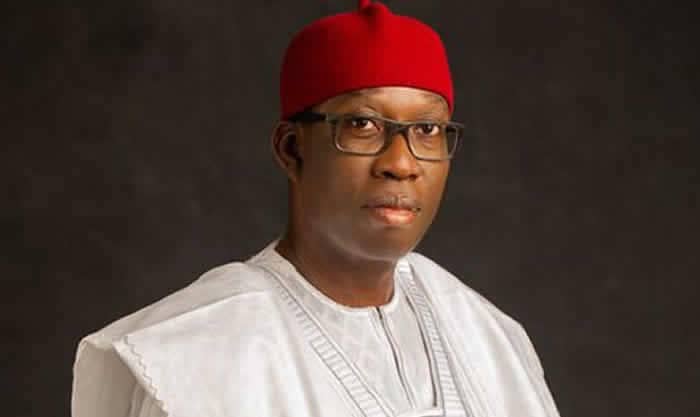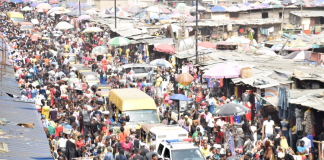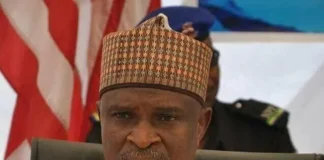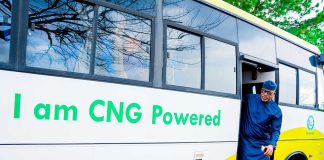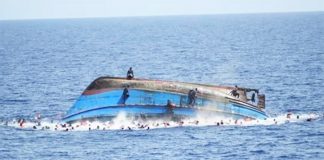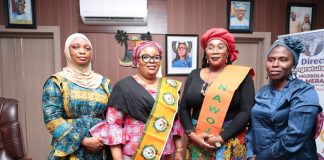Okowa calls for dredging of Rivers Niger, Benue, building holding dams
By Cyriacus Nnaji
His Excellency Senator (Dr.) Ifeanyi Okowa, Governor of Delta State, has called on the Federal Government to expedite action towards ensuring the dredging of the River Niger and River Benue, and also building holding dams to cushion the effect of flooding in Nigeria.
In a release, Okowa said this has become necessary following the Nigerian Meteorological Agency (NIMET) flood projection for 2023 which is expected to be bigger than that of 2022. “The NIMET flood projection for 2023 is expected to be bigger than that of 2022. It is hoped that the Federal Government will consider dredging the River Niger and River Benue as well as building holding dams to cushion the effect of flooding in the country,” he said.
Governor Okowa made this call in his Keynote Address at the United Nations Framework Convention on Climate Change (UNFCCC) Side Event organised by Nurses Across Borders International in Collaboration with the Delta State Government, under the leadership of Pastor Peters Omoragbon, the Executive President.
The Side Event titled: ‘Building Healthy and Resilient Communities in Africa to Combat Climate Change Crisis’ was held at Sharm El-Sheikh, Egypt on 17th November, 2022.
Okowa who was represented at the occasion by the Permanent Secretary, Ministry of Environment, Delta State, Dr. Mininim Ibiere Oseji, spoke on what he ‘Role of Government in Building Resilient Communities and Climate Resilient Health System in the Niger Delta in the Wake of the Recent Flooding in Nigeria.’
The Governor said that Climate change is a global phenomenon caused by the release of greenhouse gases (GHGS) such as carbon dioxide (CO2) into the atmosphere due to anthropogenic activities which include deforestation, burning of fossil fuel to power homes, engines and industries etc. leading to global warming, adding that the socio-economic impact and consequences of climate change include increased risk and uncertainty in agricultural production leading to food insecurity, flooding, heat-related mortality and morbidity, respiratory diseases such as lung cancer, asthma, bronchitis as well reproductive problems. He said the stalling of agricultural productivity leads to malnutrition particularly in women and children which increases their vulnerability to ill health.
Speaking on Delta State’s efforts in implementing mitigation and adaptation of climate change actions, Okowa disclosed that Delta State has embarked on a number of projects to enhance ecosystem of planted forests through Sustainable Forest Management (SFM), Forest Landscape Restoration (FLR) and Governance Innovation (GI). “These projects are aimed at reducing land degradation, conserving biodiversity, improving ecosystem services and mitigating Climate Change,” saying “it is well known that carbon capture is crucial for mitigation as trees have the capacity to mop up and store substantial quantity of atmospheric carbon dioxide (CO2) in their biomass.”
Read Also:Wike’s Ally Dumps G5 Governors, Joins Atiku, Donates 20 Buses For PDP presidential Campaign.
Some of the State’s priority projects relating to climate change according to Okowa include Promoting low emission development strategy (LEDS) in the state; Development of air quality measurement sensors to major cities in Delta State; Climate change research/vulnerability assessment; and Climate change education/dissemination of climate information
Other measures include Tree planting action plan, Adoption of the territorial approach to climate change (TACC) and Rechanneling of flared gases into power generation and production of diversified cooking gas.
He said Delta State is leveraging on Territorial approach to climate change (TACC) which seeks to reduce the vulnerability of communities within Delta State to the anticipated climate change impacts through the promotion of carbon climatic resilient growth, adding that amongst the projects carried out by TACC programme are several quick win projects such as improved clean cooking stoves which are designed to reduce the amount of smoke inhaled when cooking with traditional 3-legged stove and also serve to discourage such practices as deforestation and forest degradation.
Okowa said the World Bank successfully implemented the Nigerian Erosion and Watershed Management Project (NEWMAP) in three communities in Delta State and also selected Delta State for implementation of the West African Coastal Areas (WACA) Project. “Other organisations such as United Nations Development Programme, United Nations Environment Programme, United Nations Institute for Training and Research, United Nations Industrial Development Organization and Food and Agriculture Organisation are invited to join the World Bank to assist the State in building healthy and resilient communities.”
Read Also: Peter Obi Counters Kadaria Ahmed After She Asked Him To Condemn Eastern Security Network
On the state’s Greenhouse gas inventory programme, he said there is a global call for governments at all levels to take proactive steps in the fight against climate change through their countries Nationally Determined Contribution under the Paris Agreement. He said that Delta State Government has been proactive in this regard by recently releasing funds to the State Ministry of Environment to implement a Green House Gas Inventory Programme in the State. This is in a bid to be counted as a territory working assiduously to contribute to achieving global temperature below 2 degrees Celsius.
Okowa who said that Women in Delta State of Nigeria were in the forefront of addressing climate change, added that when the Nigerian Meteorological Agency (NIMET) issued a Flood Alert through its 2022 Annual Flood Outlook, the 2022 Flood Disaster Management Committee was constituted with the mandate to draw up measures to address the impact of flooding in the State. “Sensitization was started very early with stakeholders engagement of traditional rulers, community leadership, schools etc. Many residents responded by moving away from the low planes, but as expected some people who hold some traditional beliefs held on to their ancestral homes. The Ministry of Environment was directed to open up the canals leading to the Niger River and the Delta State Oil Producing Areas Development Commission (DESOPADEC) was also handy in this regard as they opened up canals around their own operational areas.
“A total of 12 camps were established in the State with almost 40,000 internally displaced persons resident within them and 22 new babies born. Teachers were mobilised to the camps to teach the school age children, while clinics were set up for health workers to provide free health services to the camp residents. The residents were also enrolled in the State Health Insurance Programme,” he stated.
Okowa concluded by commending the organizers of the event, Nurses Across the Borders International, as he promised his government’s open doors to collaborate with groups and individuals in the development of Delta State.

